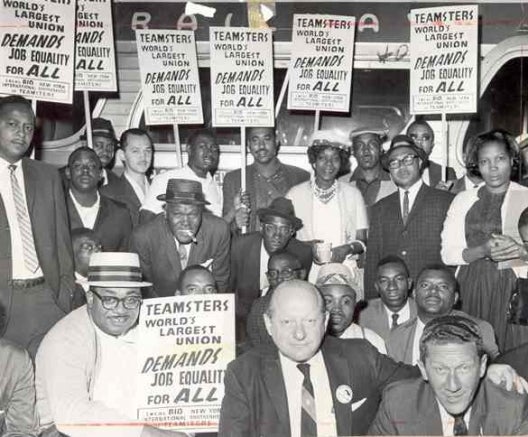News
This Black History Month, the Teamsters Recommit to Justice for All

Black history is American history. But throughout our nation’s long existence, it has been overlooked and glossed over, often not considered important enough to teach in schools. That’s why celebrating Black History Month every February is so essential – it focuses on what for many are the untold stories of great Americans that were disregarded because of the color of their skin.
The Teamsters have a long record of standing in solidarity with African-Americans on civil rights issues. Early on in the union’s history, Teamsters advocated for “no color lines” within the labor movement and would not hold with the practice of separate unions for Black members. Women and minorities were part of the membership from the beginning, with Black Teamsters attending at the founding convention. Teamster contracts included provisions for equal pay as early as 1917. That year, the union won a clause in a contract for women laundry workers that employees would be paid the same regardless of race.
Over the years, the Teamsters Union has been privileged to both lead and support civil rights struggles that helped build the foundation of our great union and helped make the U.S. a better place for all of us.
But there is still much work in this country that needs to be done. This week, more than a dozen Historically Black Colleges and Universities (HBCUs) have faced bomb threats just for their mere existence.
Saigan Boyd, a student at Spellman College in Georgia, told CNN these latest threats show how far this nation still need to come. “I’m just ultimately tired of dealing with this level of unsolicited hatred,” she said. “I’m just tired of being terrorized like how my grandparents were.”
America needs to learn its history. That includes more than century of lynchings that took place where mob violence was allowed to serve as a racially-motivated judge and jury across the country.
We can’t go back. And the Teamsters are here to say that we won’t allow it.